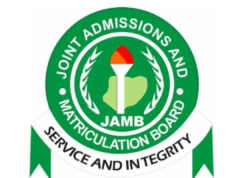In line with the commencement of the 2022/2023 on going JAMB registration. its advisable for candidates to get their books together and start studying. if you want to succeed and get into your desired institution of study, then you aught to start preparing now.
In this article, I will share 4 study habits to enable you to prepare effectively for your upcoming exams.
1. Create a study timetable
This is the first thing you should do while preparing for your exams. Set a stipulated time for study. If you are still in school, this might be difficult for you, but you can still utilize this technique during the weekend.
Analyze the subjects you will be writing in the coming exams. Which one is the most difficult? That should be your top priority. For example, if you are writing Mathematics, English, Chemistry, and Physics, ask yourself which subject you find most difficult. If it is Mathematics, create more time and days to studying and understanding the topic.
2. Utilize past questions
JAMB past questions are released every year. If you don’t have one, endeavor get your hands on it. Using past questions helps you to analyze the JAMB syllabus. It enables you to analyze, summarize and understand the question format used by the examination board.
Another effective way of using past questions is under timed conditions. set a timer for the same amount of time that is allocated during the exam and attempt to answer as many questions as you can. You don’t have to worry about how many you get wrong. Mark the questions you got wrong and set out time to study those questions and their accompanying topics.
3. Engage active studying techniques
According to research, active studying techniques yield better results than passive studying techniques. Active studying enables you to interact with the material while passive studying doesn’t. active studying is very effective especially when accompanied with spaced repetition.
There are lots of active studying techniques which can be used to improve your study habit. One good example is testing yourself with past questions (listed in number 2 above). Other active studying techniques include: using flashcards, making mnemonics, summary sheets, active recall questions, teaching others etc.
Passive studying techniques you should avoid include: rereading your notes and textbooks, highlighting, and recopying notes.
4. Avoid distractions
Avoid anything that can pose as a distraction while studying . This can be your phone, laptop, Social media etc. this also means Keeping off from things that distract you such as TV shows, movies and even hanging out with friends. Removing all distractions prevents you from procrastinating on important at hand.
One of the best ways to avoid or get rid of distractions is by creating a productive environment. When it’s time to study, remove your phone from your desk. You can keep it in your wardrobe or even better give it to a parent and tell them to only give it to you after you are done studying. If you find yourself being distracted by social media while studying, then you can install app blockers and timers on your phone and laptop.
If you live in a noisy environment/home, then you can study in your school library if that is available. However, if you don’t have access to a library, then you can make a deal with your family. You can negotiate with your siblings to be less noisy or you can listen to lo-fi music while studying.
Another form of distraction comes form friends. Studying for your exams is very important and should be your top priority at the moment. Hence, it is best you schedule out time to hang out with your friends. However, if that time falls into the same time that you study, then you should prioritize your studying.
Good luck as you prepare for your exams.

